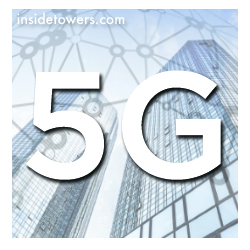UPDATE The Wireless Infrastructure Association (WIA) petitioned the FCC to clarify its rules to facilitate broadband deployment by promoting co-locations on existing wireless facilities. The association asks the agency to begin a rulemaking to further speed deployment of macro tower upgrades related to 5G deployment.
As part of its request, WIA asked the FCC to rectify what it says is an unnecessary barrier to broadband deployment because of the divergent treatment of compound expansions around wireless facilities.
“Specifically, the Commission should update its rules to: (i) ensure that co-locations requiring limited compound expansions, excavation within 30 feet of a tower site, qualify for relief under Section 6409(a),” says the association in the document.
These petitions are based on the FCC’s authority under Section 6409(a) of the Spectrum Act of 2012, which expressed Congress’ support for wireless co-location. FCC regulations apply to Section 6409(a) to both small cells and macro towers in order to efficiently deploy wireless broadband networks.
“Action on these petitions will help expedite the siting process so that the U.S. can continue to lead the world in wireless innovation,” said David Weisman, Chairman of WIA’s Board of Directors and Chief Executive Officer of InSite Wireless Group. “Swift deployment of wireless infrastructure necessitates removing barriers to co-location, which is the quickest, most efficient way to deploy 5G.”
Specifically, the association urges the agency to clarify that “Section 6409(a) and the implementing regulations apply to all state and local authorizations required to deploy new or replacement transmission equipment on existing wireless towers or base stations.” It wants the agency to elucidate that the shot clock begins to run when an applicant makes a good faith attempt to request local approval (rather than repeatedly delaying when the shot clock begins.) Importantly, the WIA would like the Commission to make clear that ‘conditional’ approvals of eligible facilities requests violate Section 6409(a) and localities may not establish processes or impose conditions that effectively defeat or reduce the protections.
Fees should be cost-based and not excessive, believes the WIA. Some WIA members report certain jurisdictions use fees “in a manner that prohibits deployment, particularly in localities that utilize third party consultants.” Examples the association cites include a $10,000 required deposit in Martinez, CA for planning review. Modifications that include a height increase beyond the Beaverton, OR standards can result in fees up to $7,282. “Thurston, Washington imposes a $1,880.49 special use permit fee for every antenna equipment addition or swap. Mercer Island, Washington imposes a similar $1,680.49 fee,” according to the WIA.
The association has worked on aspects of this petition for more than a year, WIA President/CEO Jonathan Adelstein previously told Inside Towers. It “prioritized clarification of key definitions to close loopholes that have hindered 5G deployments, as well, for modification of compound expansion rules to promote co-locations and installations of critical public safety facilities,” said Adelstein. WIA appreciates the agency’s work to remove barriers to small cell deployment. Now, it plans to work with the agency as the Commission continues to improve the wireless infrastructure siting process for macro towers as well.
August 28, 2019





Reader Interactions